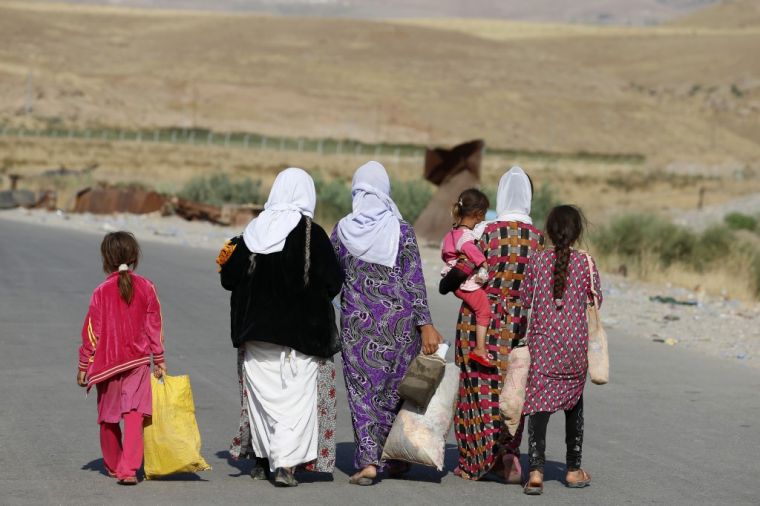ISIS is resorting to ancient canons to justify the sexual enslavement and rape of women

Islamic State (ISIS) fighters are not above bending the teachings of the Prophet Muhammad in order to justify their practice of enslaving and trading Yazidi women which has been outlawed in many Muslim countries.
The details of the group's abuse were laid out in an hour long online forum with reporters of the New York Times who covered the story of Yazidi hostages being forced to take birth control pills so that ISIS fighters could continue to sexually abuse them.
Foreign correspondent Rukmini Callimachi said ISIS is reviving outdated practices on slavery that have been rejected by the modern Muslim world.
Callimachi said ISIS was relying on canons from the seventh and eighth centuries on how slaves should be treated. However they are bending the rules to suit their own intentions.
"They are relying on a little-known but well-established canon of Islamic law that took shape in the seventh and eighth centuries and regulated how slaves should be treated. At the same time, it is clear that ISIS is cherry-picking from this canon," Callimachi said.
ISIS, she explained, is not adhering to the period of abstinence that supposedly needs to be observed upon acquisition of a female slave in order to ensure that she is not pregnant. Instead, the fighters are using birth control or urine tests to know whether a sex slave is pregnant. They further justify this breach of the canon by citing the ruling of a Tunisian scholar in the 1100s who taught that the owner of a slave could forego the waiting period if he is sure that the slave is not pregnant.
Matthew Barber, the Iraq Executive Director of Yazda, a humanitarian and advocacy group created by Yazidi Americans, said that some of the jihadists have deliberately used the phones of their captives to taunt their loved ones and cause them even more pain and trauma.
As for the supply of the birth control pills, Barber said they may have come from areas that ISIS has taken control of. That, however, does not protect the women from sexually transmitted diseases and infections stemming from the repeated abuses at the hands of their captors, and being traded to other masters on a frequent basis.
Barber explained that while they are doing their best to help the women they have rescued, there is little they can do for those who remain in captivity. Given the trauma of the abuse, he added that there was a need for specialists in mental health in northern Iraq.
"Approximately 2,780 Yazidis (male and female) have been rescued from enslavement, but the frequency of new rescues has decreased because of a lack of funds for rescues and increased security measures from ISIS. The Islamic State has captured and/or killed many smugglers working to rescue Yazidis," he said.











